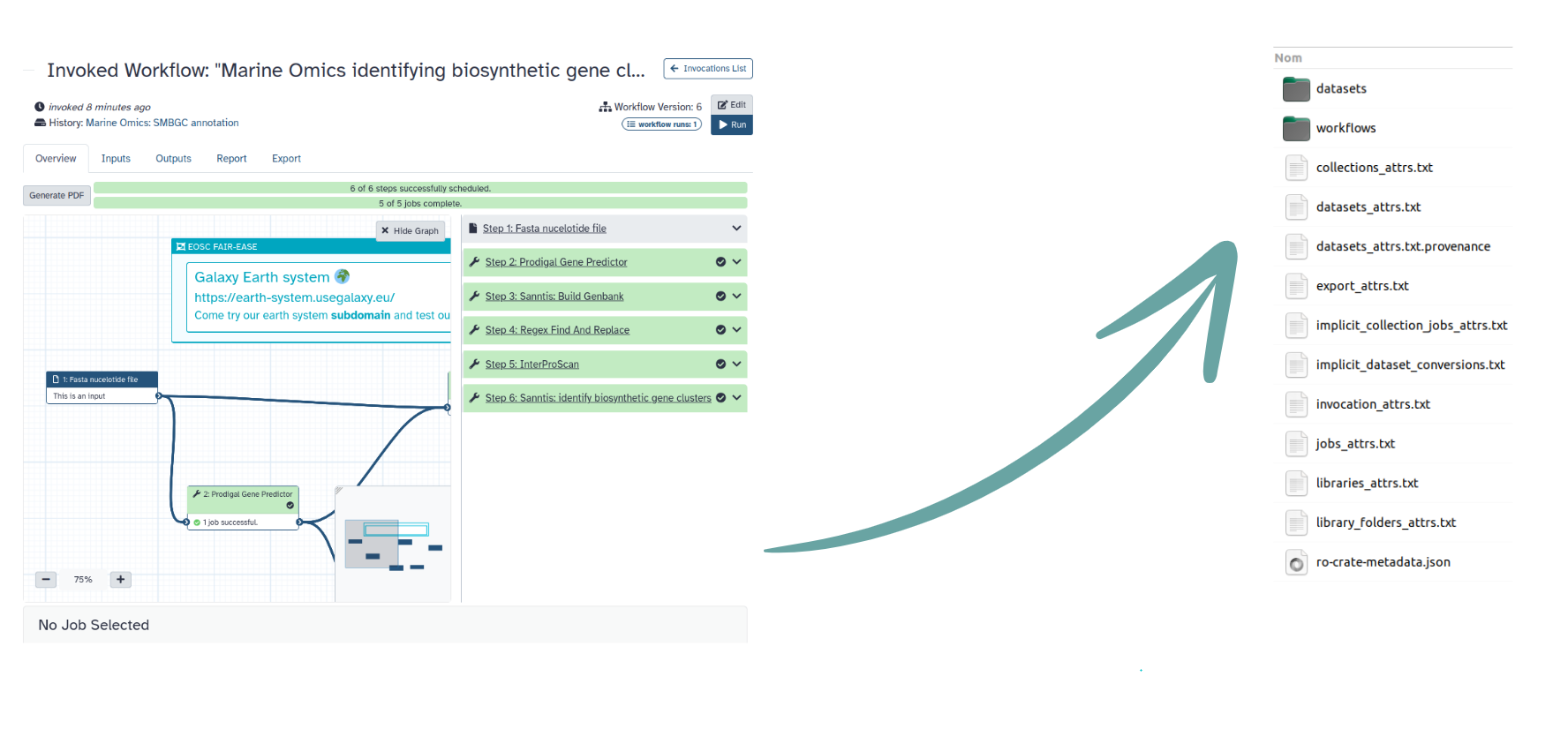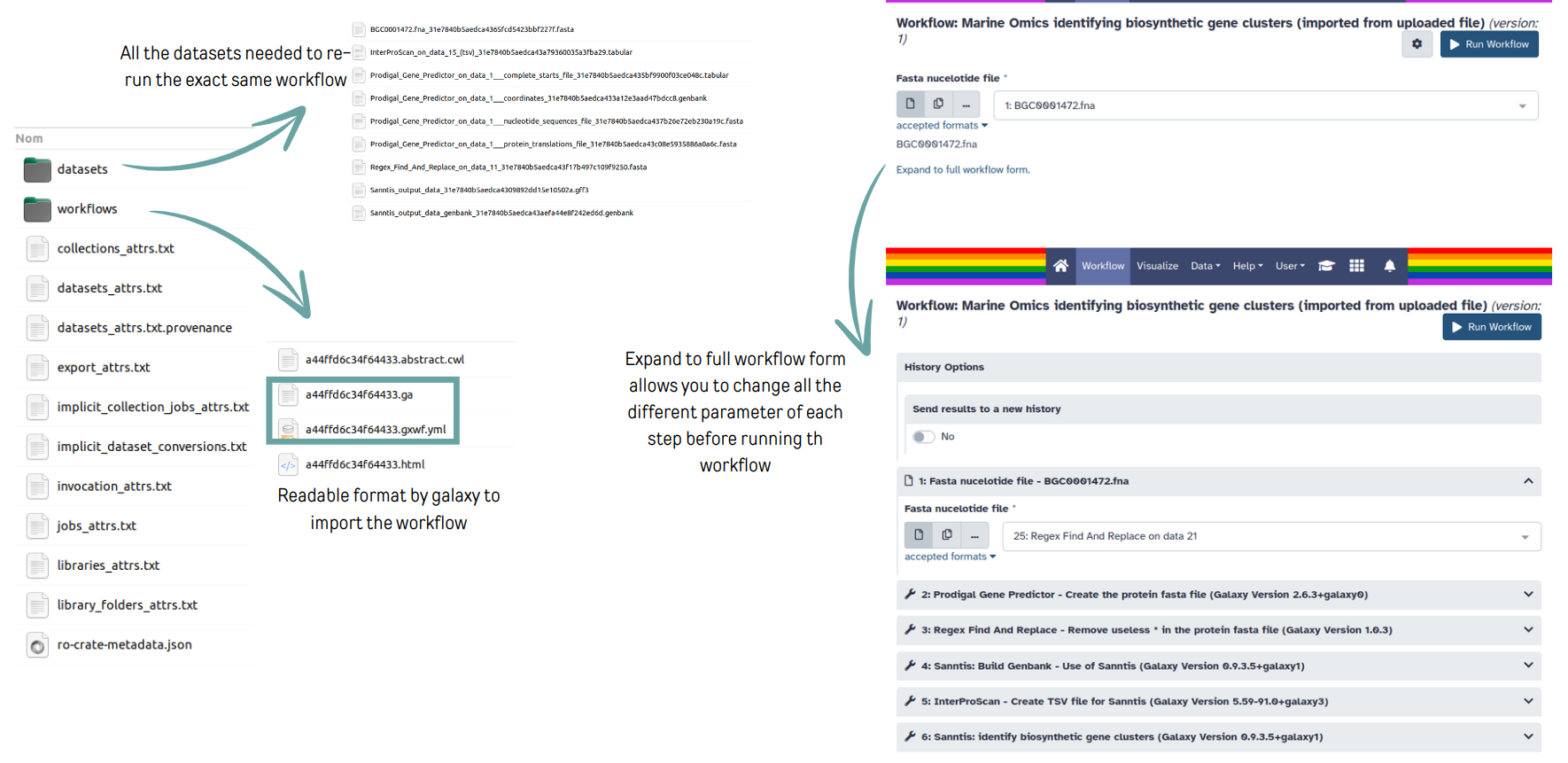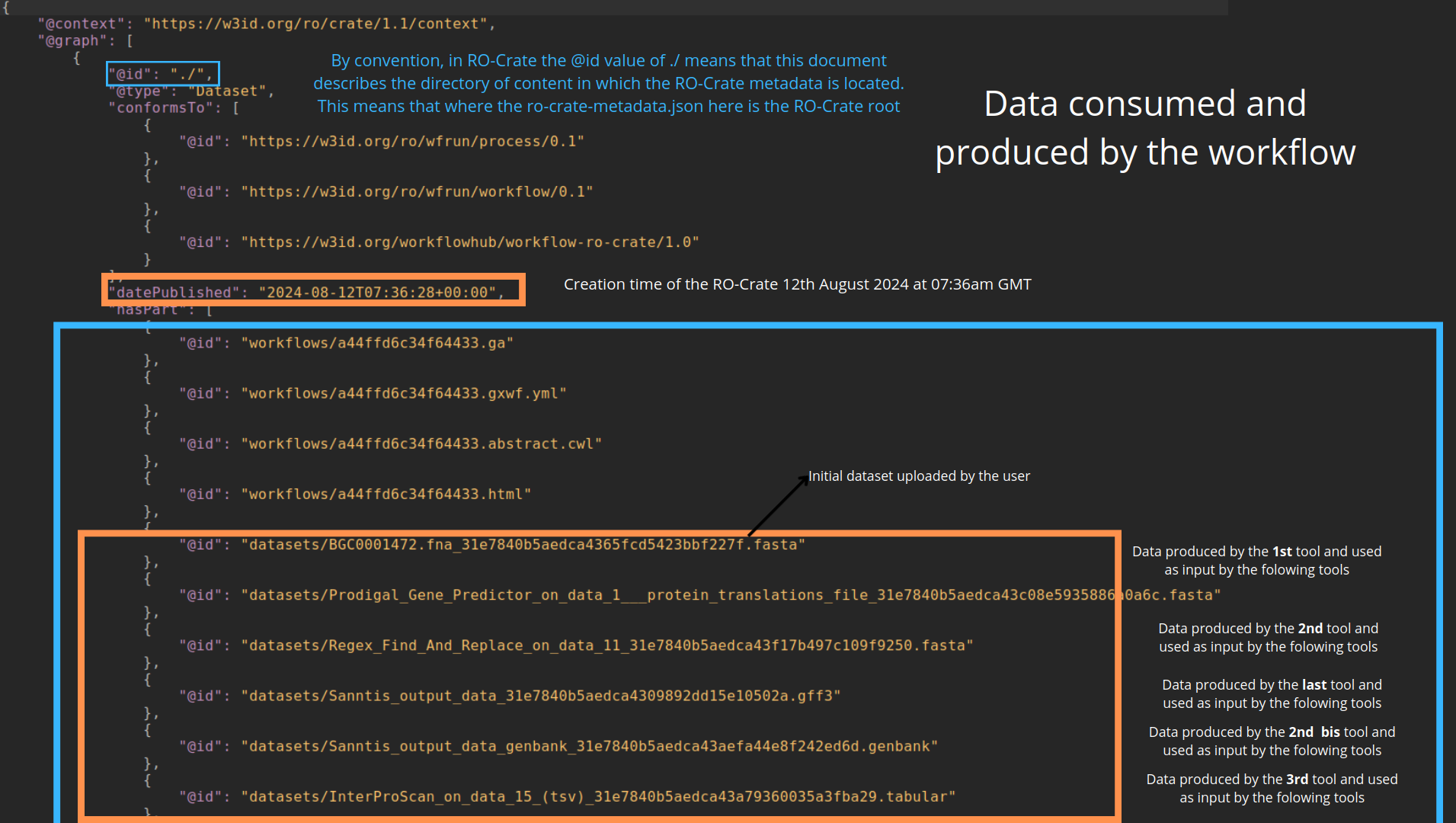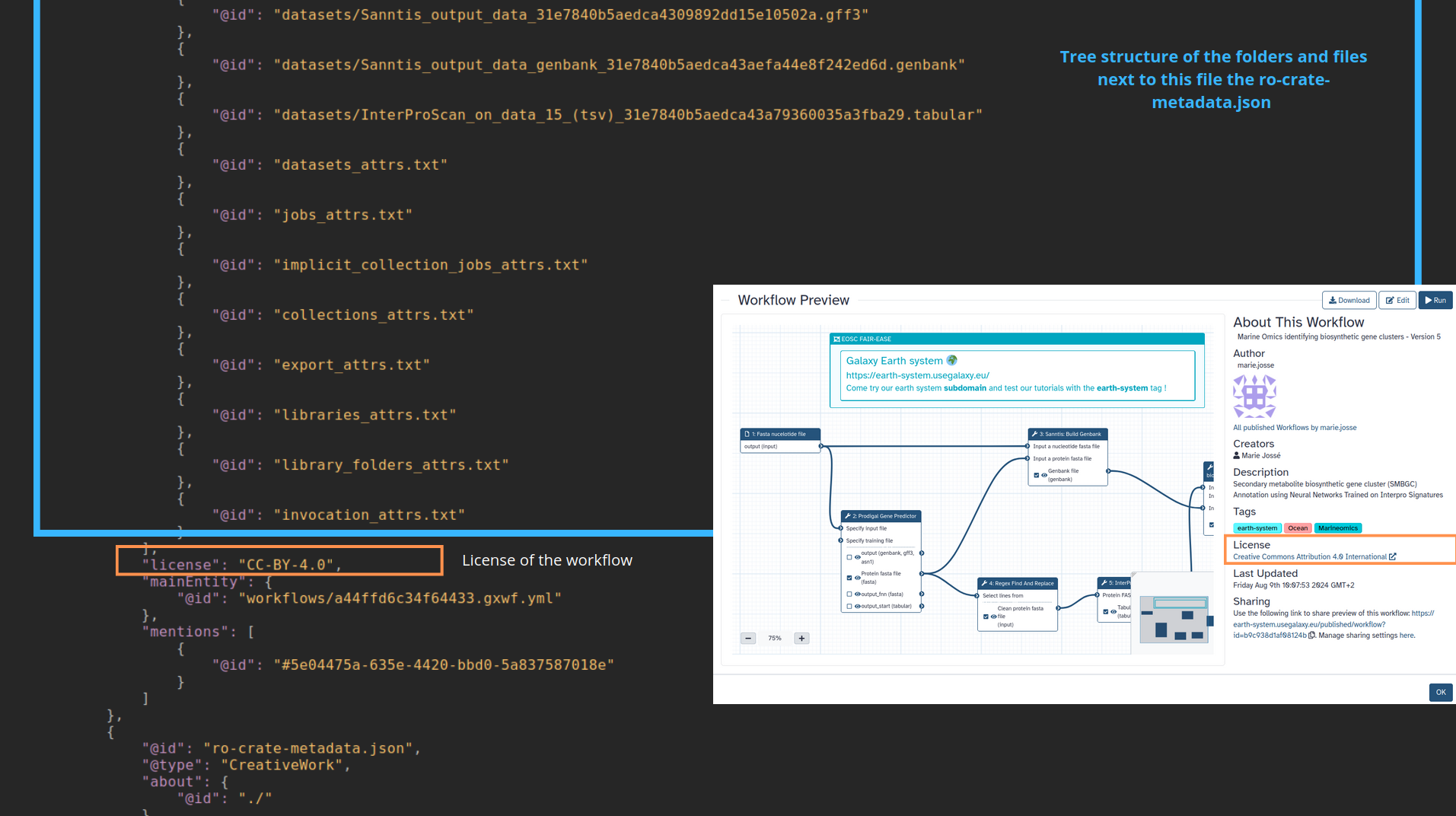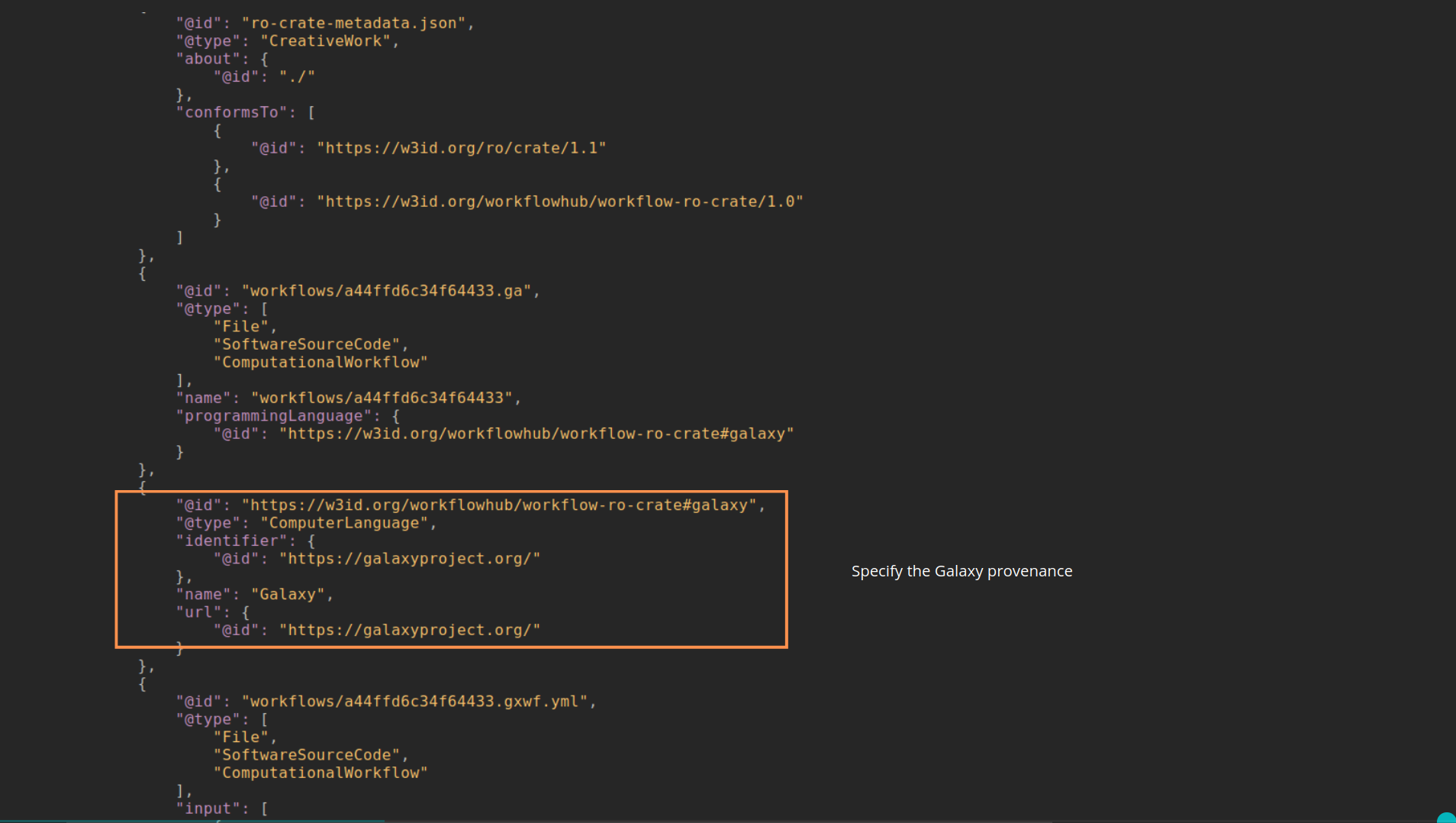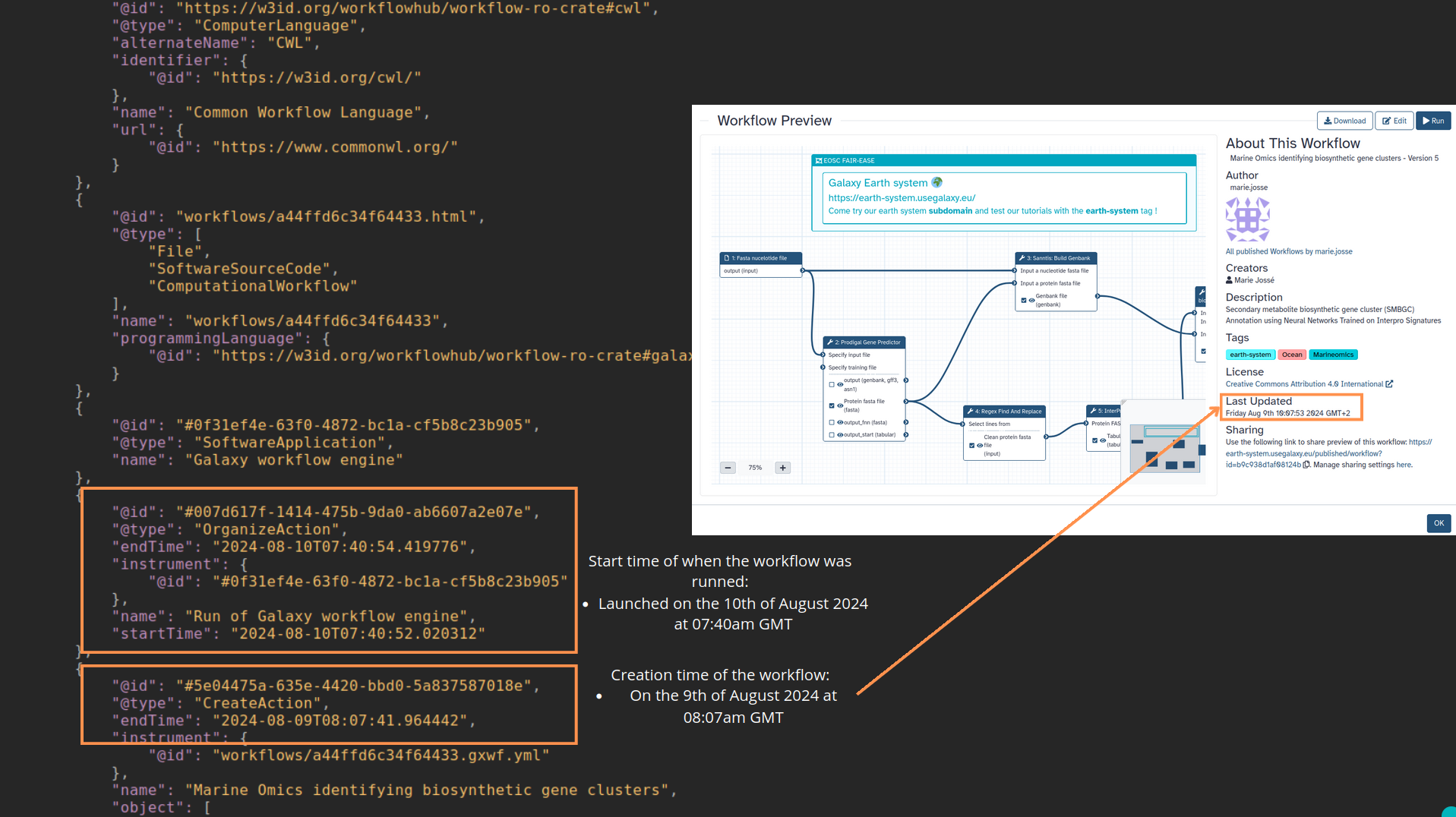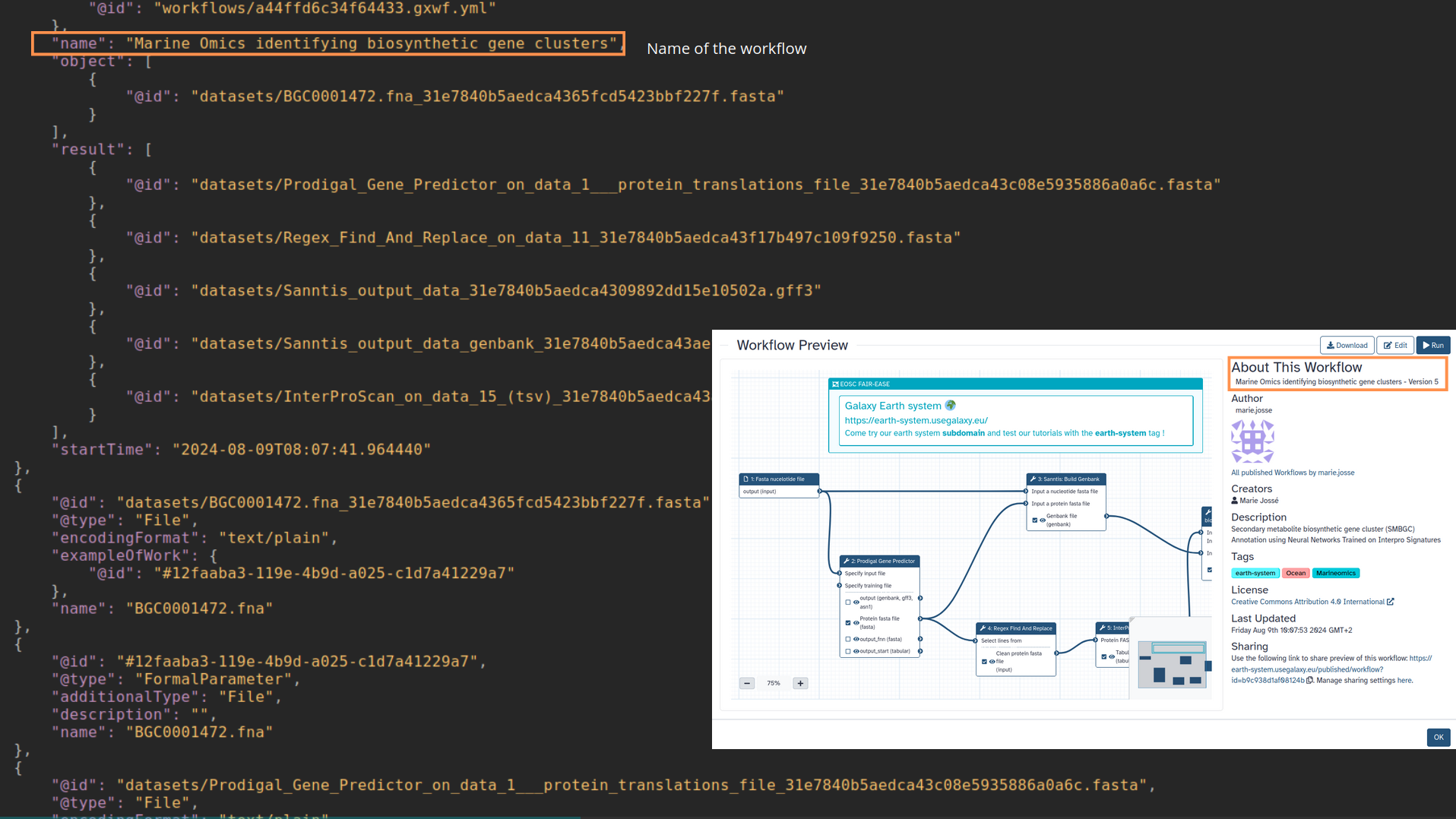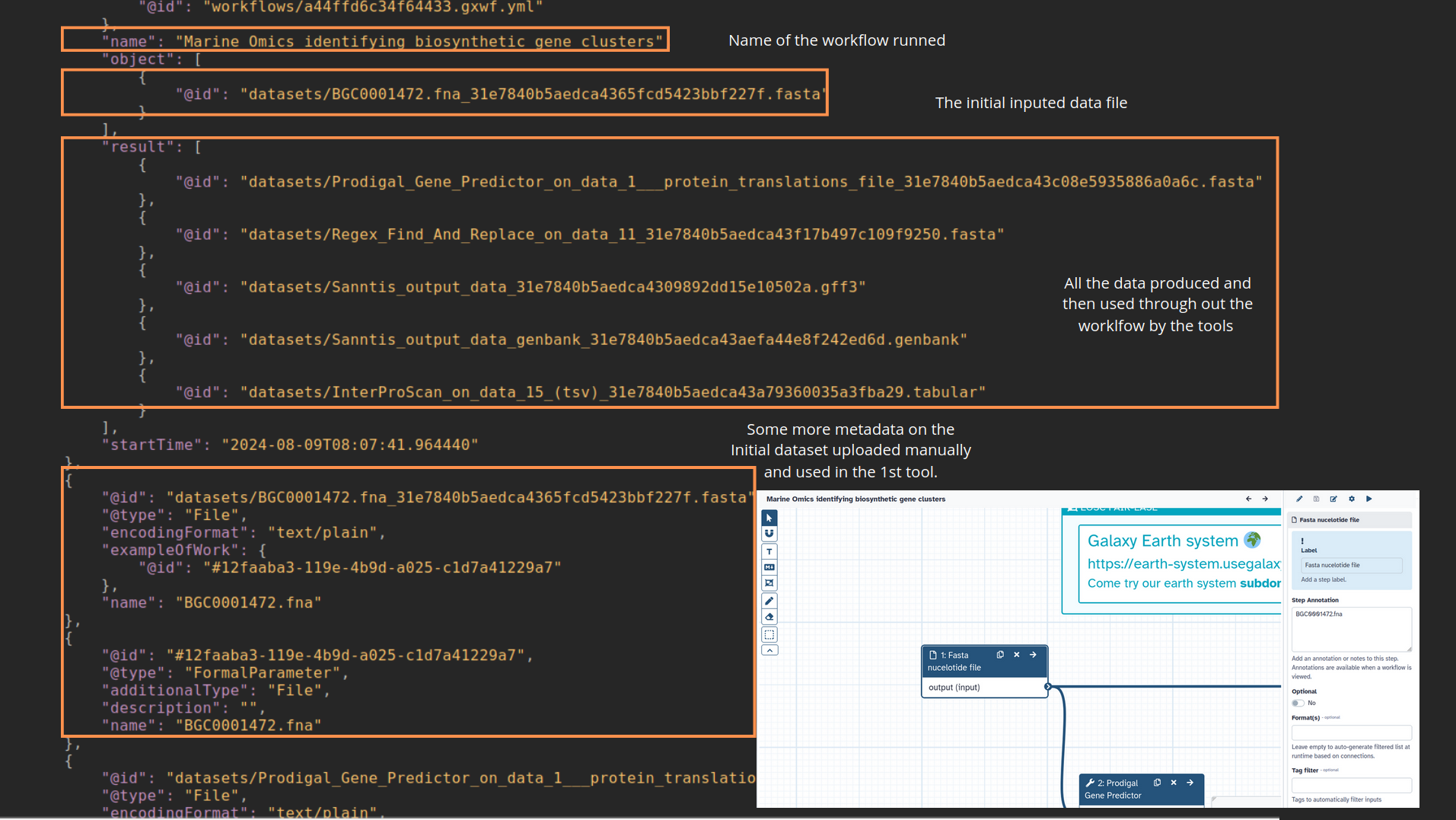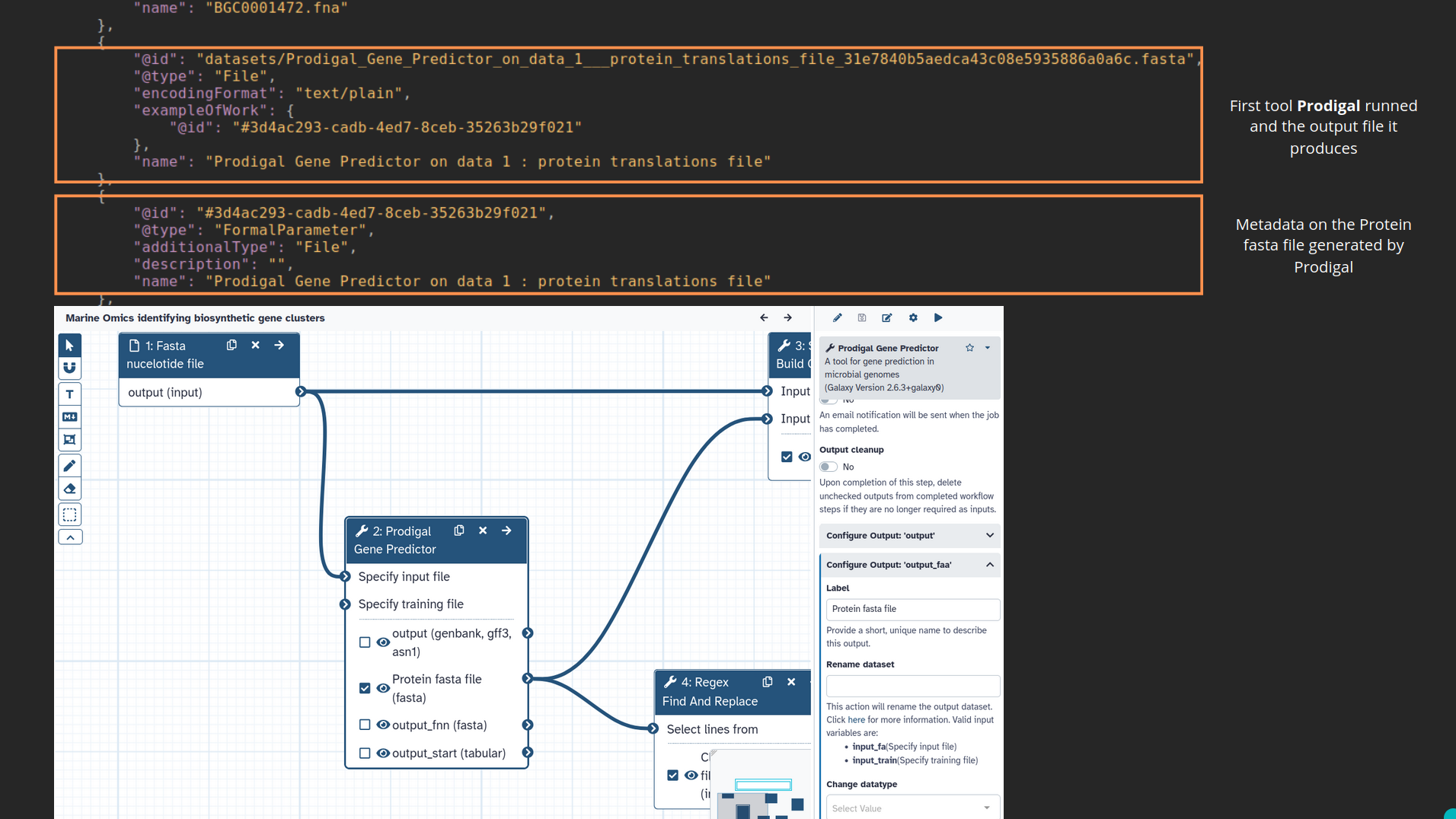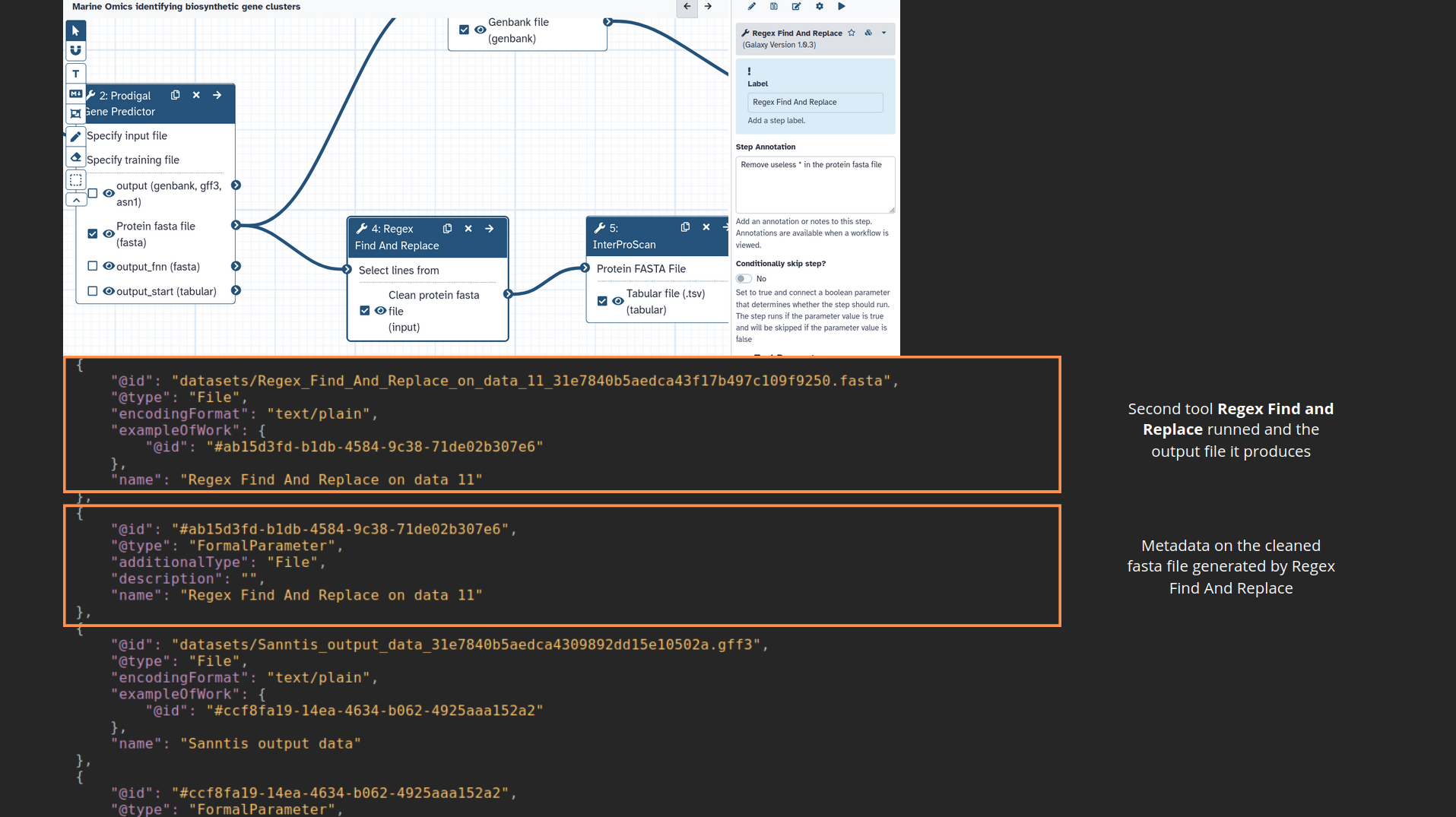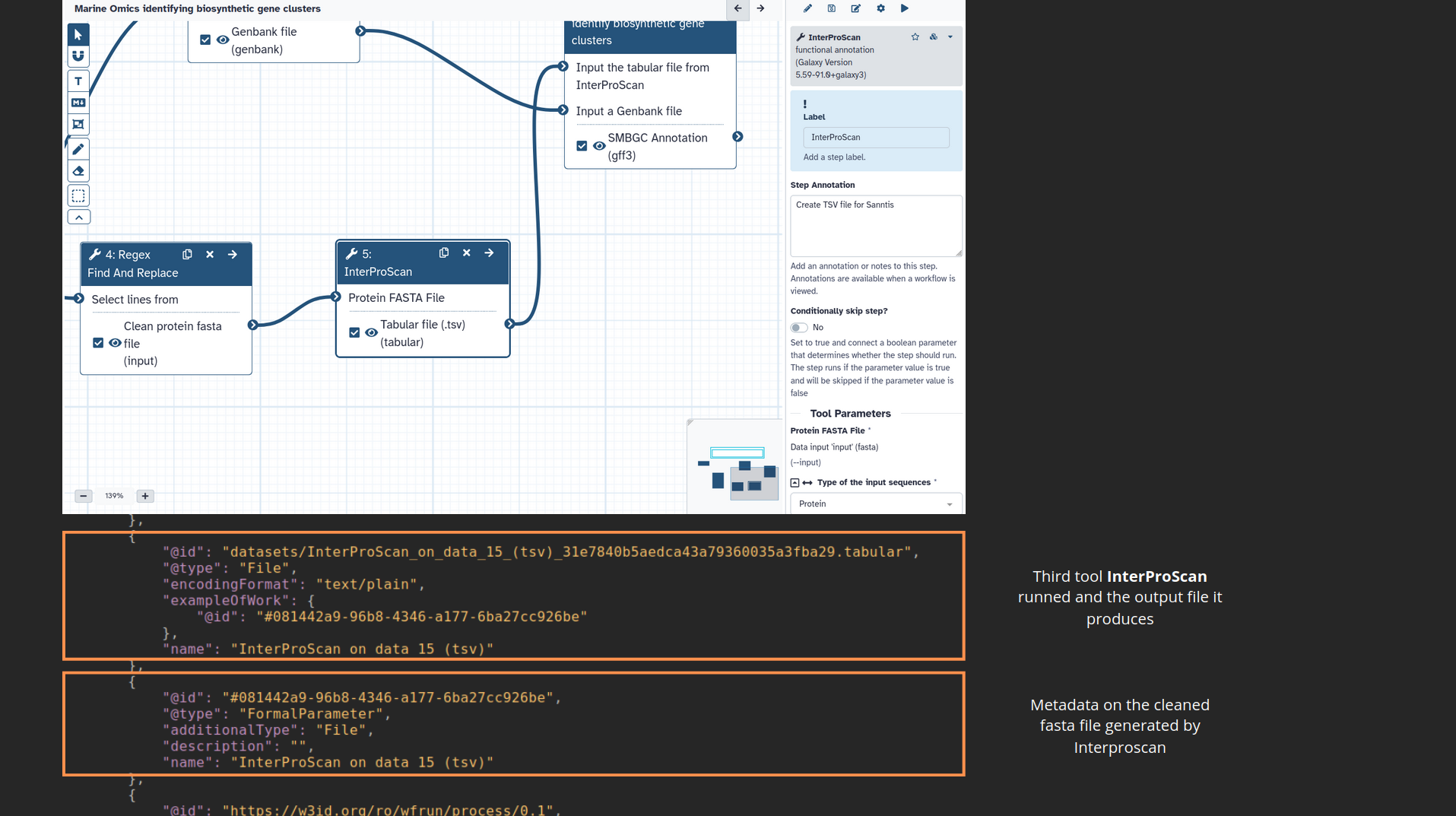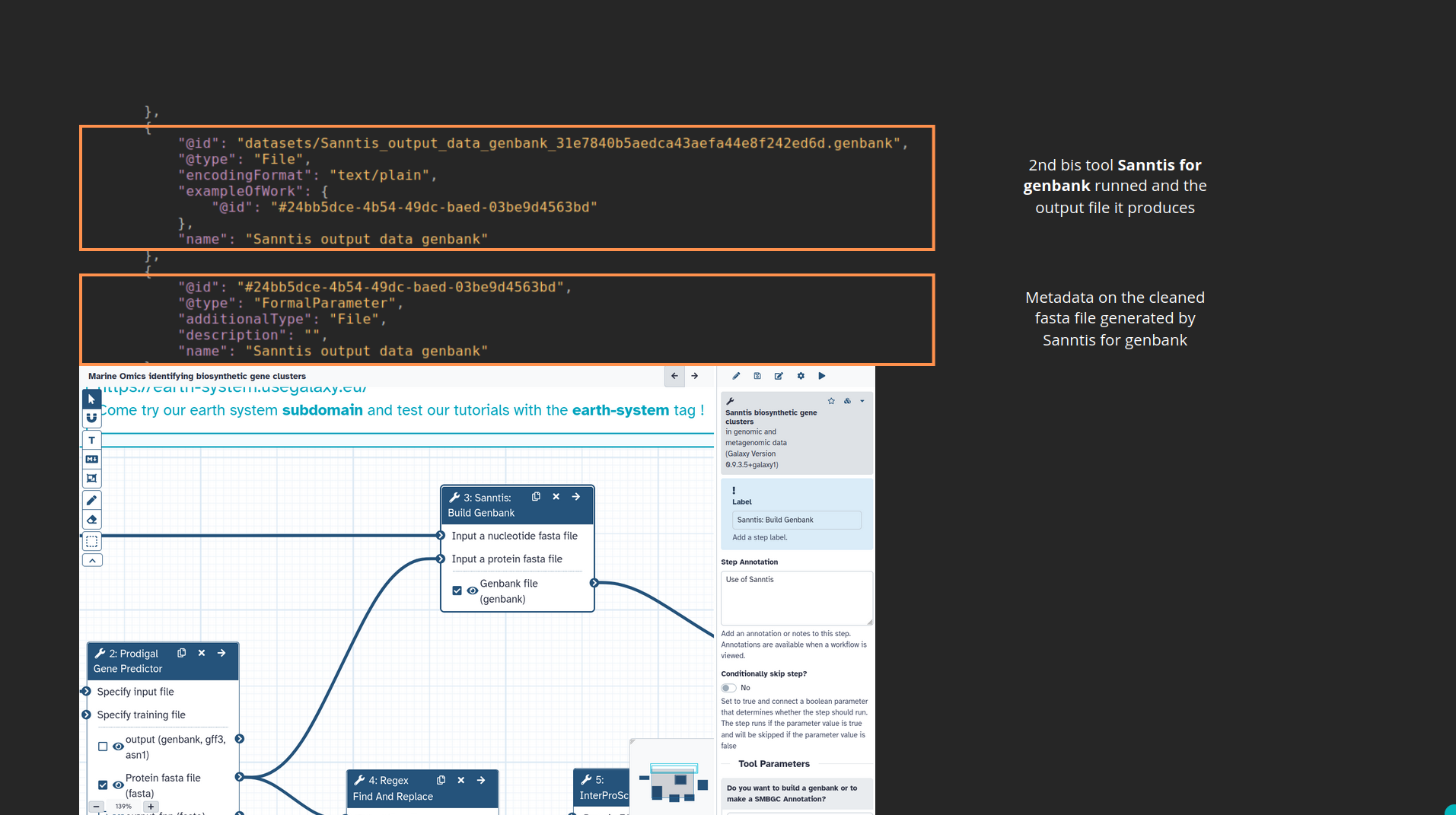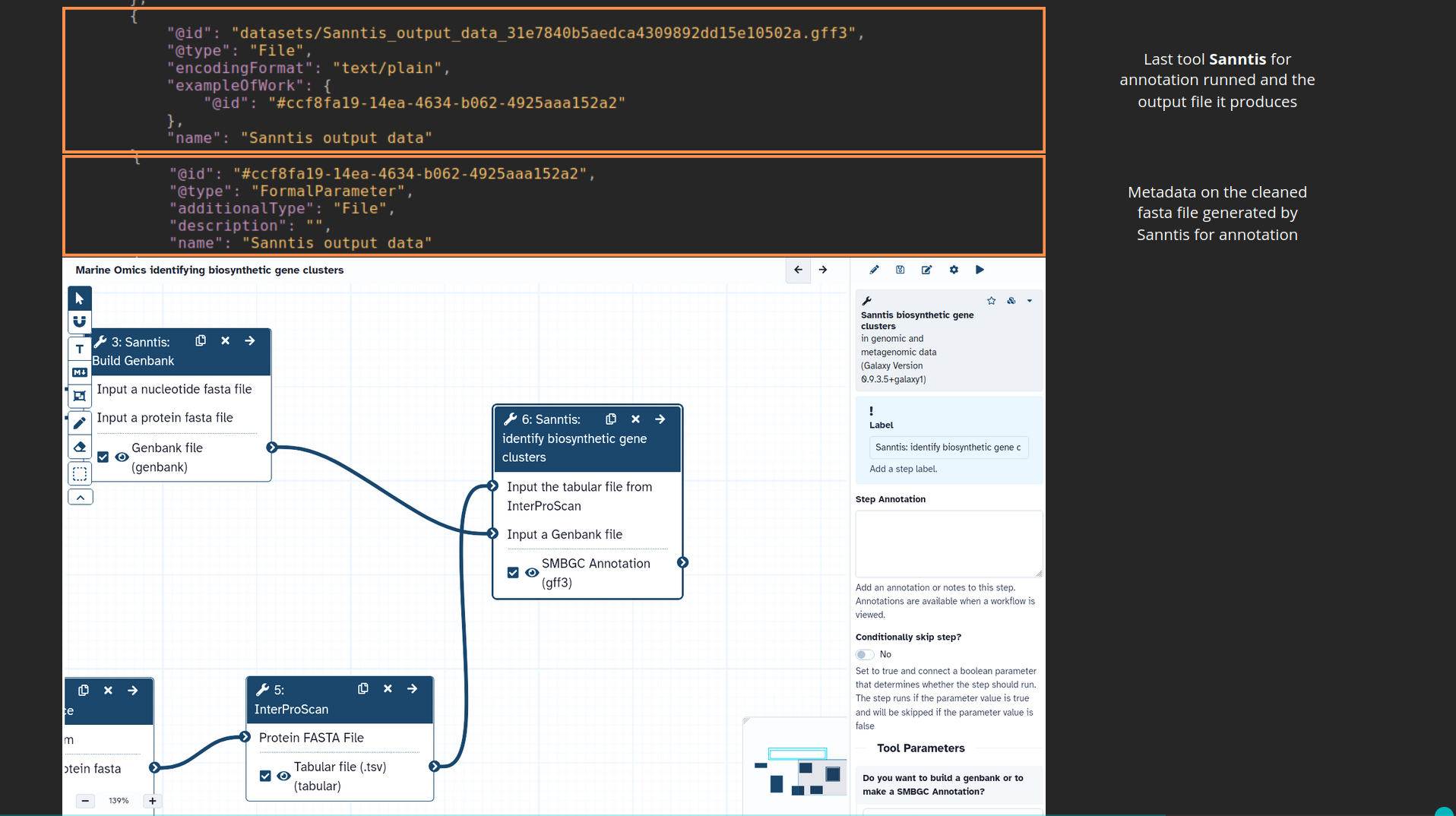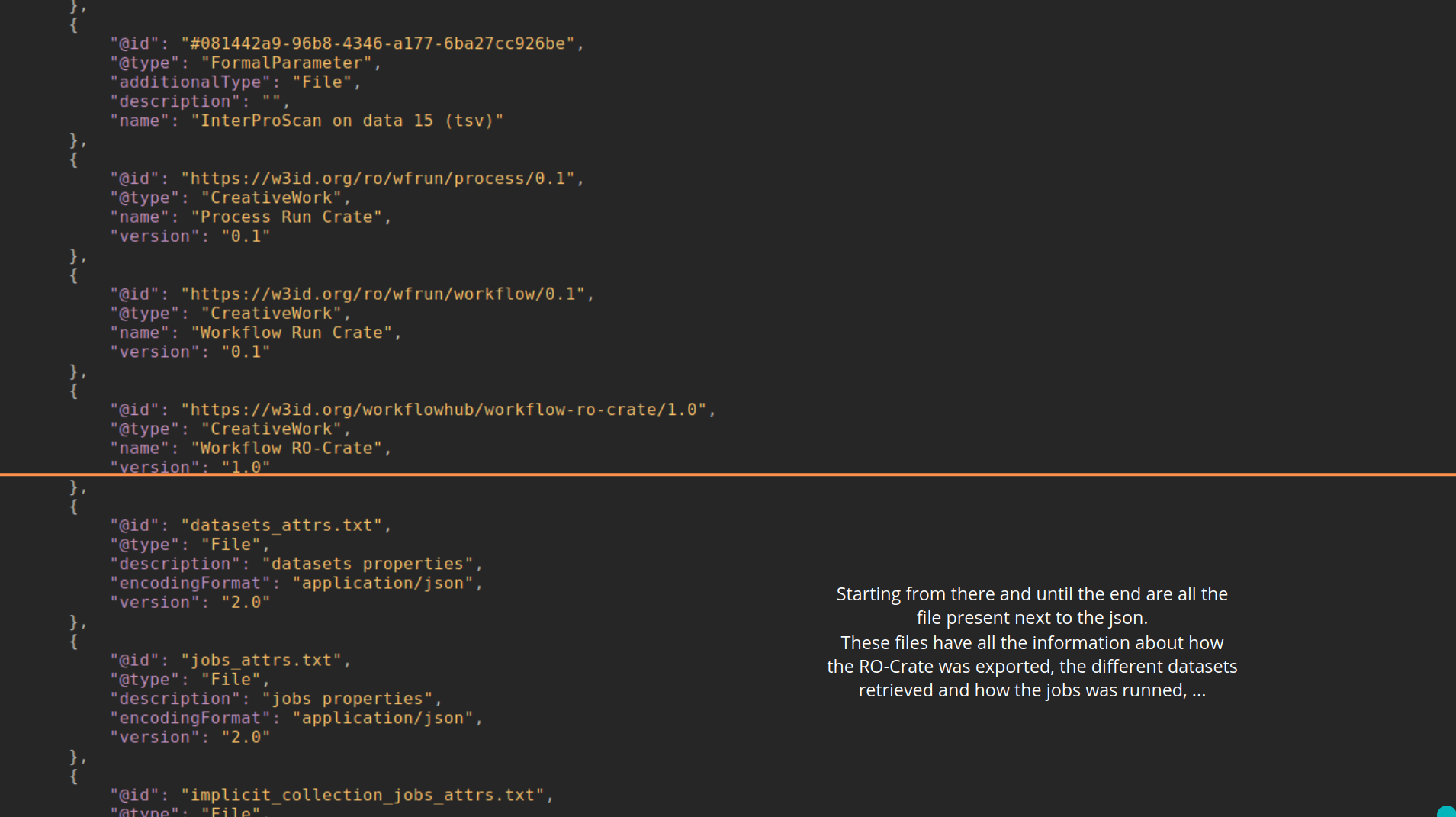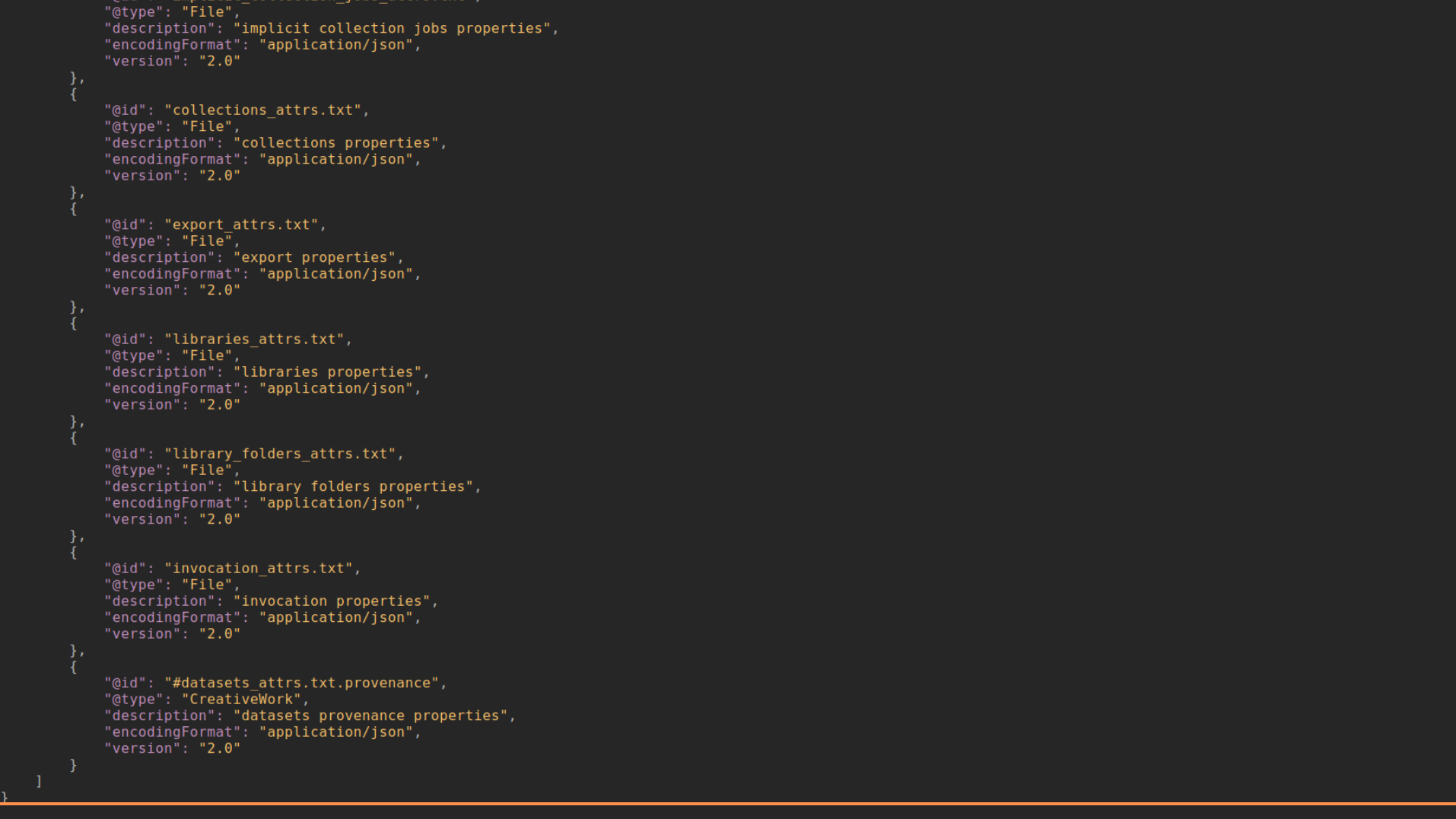An earth-system RO-Crate
Contributors
| Author(s) |
|
Questions
How to generate a RO-Crate
How to follow a Marine Omics study
How to read a RO-Crate ?
Objectives
Understand RO-Crate in an earth-system context
last_modification Published: Dec 2, 2024
last_modification Last Updated: Dec 2, 2024
Workflow context
The workflow used as an example here goes from :
- First, produce a protein FASTA file from a nucleotide FASTA file using ( Prodigal ( Galaxy version 2.6.3+galaxy0)) (a tool that predicts protein-coding genes from DNA sequences).
- Then, use ( InterProscan ( Galaxy version 5.59-91.0+galaxy3)) to create a tabular. Interproscan is a batch tool to query the InterPro database. It helps identify and predict the functions of proteins by comparing them to known databases.
-
Finally, discover ( SanntiS ( Galaxy version 0.9.3.5+galaxy1)) both to build genbank and especially to detect and annotate biosynthetic gene clusters (BGCs).
The workflow itself
Run the workflow
Import and run the Biosynthetic Gene Clusters workflow
To know more on how to do that follow the tutorial
Generate the RO-Crate
Once you run the workflow you can generate the RO-Crate. To do so follow the tutorial
From workflow to RO-Crate
The RO-Crate folder and architecture
Let’s dive into the ro-crate-metadata.json
Description of the RO-Crate structure
Galaxy Provenance
Title and workflow details
Dates
Data
First tool Prodigal
Second tool Regex Find and Replace
Third tool InterProScan
Fourth tool SanntiS to build Genbank
Fourth tool SanntiS to annotate biosynthetic gene clusters
Details on the different files in the RO-Crate
End of the ro-crate-metadata.json
Thank you!
Try to do the same on your workflow!
Key Points
- RO-Crate in earth-system analysis
- Marine omics workflow
Thank you!
This material is the result of a collaborative work. Thanks to the Galaxy Training Network and all the contributors!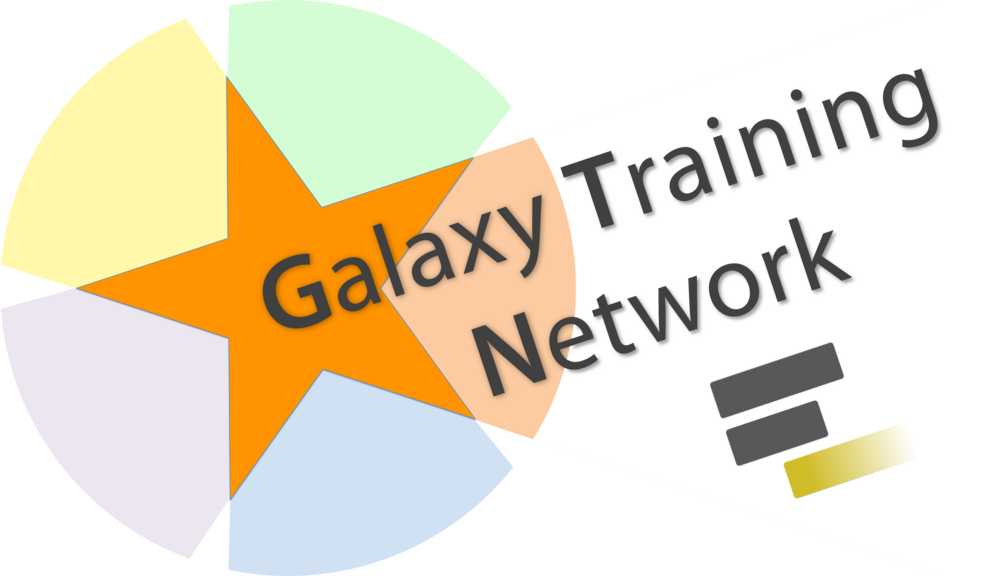 Tutorial Content is licensed under
Creative Commons Attribution 4.0 International License.
Tutorial Content is licensed under
Creative Commons Attribution 4.0 International License.
Funding
These individuals or organisations provided funding support for the development of this resource

Fair-Ease
FAIR-EASE is a RIA project funded under HORIZON-INFRA-2021-EOSC-01-04, and it involves a consortium of 25 partners from all over Europe.

EuroScienceGateway
EuroScienceGateway was funded by the European Union programme Horizon Europe (HORIZON-INFRA-2021-EOSC-01-04) under grant agreement number 101057388 and by UK Research and Innovation (UKRI) under the UK government’s Horizon Europe funding guarantee grant number 10038963.
